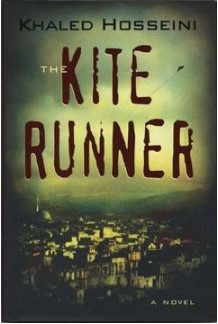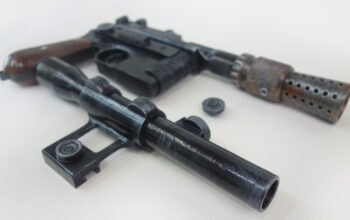Kite Runner is a novel by Khaled Hosseini, which is narrated in the first person, and one where Amir, 38, who lives in San Francisco, tells us pieces of his life since he was born in Afghanistan. His childhood in Kabul before the Russian invasion of the country, and the events that caused him to feel guilty for many years until he returns to the country to account for his past. The book is decorated with characters, including Amir (son of Baba), Rahim Khan (acquittance of Baba), Hassan (illegitimate son of Baba), Baba ( father of Amir and Hassan), Sohrab (child of Hasana), Assef (Afghanistan gang leader), etc.
Amir Jan, the lead character in The Kite Runner, tells the story of his life, which hinges on the fact that he must face the great betrayal that he has tried to hide for years. He describes from his adulthood the events that led to the breakup of his friendship with Hassan. This story also includes Amir’s personal experience fleeing Afghanistan to America in the midst of war and how the family’s secrets are discovered when he decides to return to his country to find true redemption of his past actions and inactions.

A sneak Peek into Amir’s Life
The first time Amir’s childhood is described in the Kite Runner novel, the author gives the impression that his life is quite great. He has a good friend, Hassan (who is also their servant), his father, Baba is rich and adores him, etc. There were an innocent joy and relationship that surrounded the first years of the bond between Amir and Hassan. Although there is a bit of envy, broken relationships, some cruelty, and the occasional power struggle, however, there is also adoration, loyalty, and true affection between the two. Amir wanted to win Baba and his love.
It did not take us long to realize that Amir’s life wasn’t as perfect as we thought. His mother died during childbirth, and it is clear that he feels a great lack. To make matters worse, Amir begins to think that his father also blames him for his mother’s death. This is but one of the details of the incredibly strained father-son relationship.
Amir constantly envied his half brother Hassan because of their fathers’ closeness to him. At that time, Amir still did not know that he and Hassan shared the same father. It is likely that if he had known, he would not have been so envious of Hassan. Rather than blaming Baba for his affection towards Hassan, Amir resents Hassan and becomes emotionally distant from him.

Relationship Between Amir and Baba, Amir Craves Baba’s Love
The relationship between Baba and Amir was still unresolved. Amir is sometimes unfair to Hassan. Amir has boundless admiration for his father, but he doesn’t seem to have much time for his young illegitimate son. In fact, sometimes it seems like Baba prefers Hassan and loved him one thousand times more. Actually, the father finds it difficult to understand his son. Baba has questions like; How is it possible that Amir doesn’t like violent sports? Why is he not able to defend himself? etc. Most of Baba’s complaints appear to be related to Amir’s lack of “manhood”.
All these tensions reach their peak during the kite tournament. Amir sees the kite-fighting contest as the only way to win Bab’s love once and for all. Obsessed with proving to his father that he has become a man, he devises a crazy plan. Amir’s strategy works. He manages to win the tournament and his father finally shows him some love. But that’s not all that happens. At one point, Amir witnesses a terrifying alley scene when he is searching for Hassan, who has just caught a kite. Hassan teaches his son Sohrab how to fly the kite.
The Fake Robbery, Guilt Leads to Blames
After the incident during the kite contest, Amir begins to blame Hassan for the pain his conscience causes him, but Hassan cannot alleviate that guilt even if he tries. As always, Hassan wants to please Amir, make him feel better, but he couldn’t. The feeling grows so strong that Amir makes his father send Hassan away by cruelly blaming him for a fake robbery.
Soon after, the Russian invasion of Afghanistan arrives and Kabul ends up becoming a “ghost town” for Amir. Amir and Baba had to move to the United States, and Afghanistan begins decades of war and oppression that make it a wasteland of devastated towns, destroyed schools, minefields and buried children.
Something changes in Amir when he and Baba arrive at Fremont. It may be the fact that Amir adapts easily in America. It could also be because Amir wants Baba simply as a fatherly figure or role model. Baba has no option but to work at a gas station and he loses some of the mystery surrounding him in Afghanistan. Somehow, America allows him to start from scratch, something that would have been impossible in Afghanistan.

The Fair Price, Amir Turns a New Leaf
Be that as it may, Amir becomes a good person. He takes care of his father, meets a compassionate and beautiful woman named Soraya whom he marries, and suddenly seems to be governed by a sense of ethics. Hidden deep within his soul, Amir cannot help but feel guilty about his cowardice and cruel actions towards Hassan. He had not said it, not even to his wife: “I was about to explain how I had betrayed Hassan, lied to and destroyed a forty-year relationship between Baba and Ali. But I didn’t do it ”(Hosseini 121).
He even attributes this feeling to the lack of children in his marriage: “perhaps something, someone, somewhere, had decided to deny me paternity because of what I had done. Perhaps, that was my punishment”
When Baba dies of cancer, Amir’s goodness becomes evident. He wants to give back love and is no longer the self-centred, vengeful child we met in Kabul. Baba died without revealing that Hassan is his brother. It was Rahim Khan who revealed his father’s’ secret. Rahim Khan was a good man: a familiar friend and visitor of Baba.
Summary of the Kite Runner: Lessons from Amir, Baba, Rahim, Sohrab and Hasana
In the end, the relationship between a father and a son is very vital. If it is not nurtured properly, it has the ability to derail a son. Remember this was also the reason he maltreated Sohrab and hated Hasana. Later when Amir lets go the hatred, he becomes a fatherly figure to Sohrab, starts giving money to him, and even cautions Assef from calling Sohrab a Hazara boy. If Baba was a good father, easily accessible and open to Amir, even about him and Hassan being his sons, things would not have turned out the way they did in Kabul. Amir wouldn’t have to bear so much pain for so long. Hassan may have even moved to the US with them.
Related Posts












